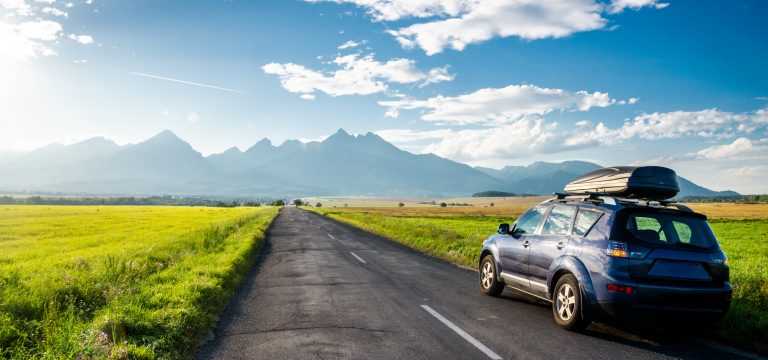When To Use Vacation Days
Whether you’re a seasoned globetrotter or a first-time vacationer, one fundamental question often arises: “When should I use my vacation days?” The answer to this question can significantly affect not just your travel experience, but also your work-life balance, budget, and overall enjoyment. This article will guide you on when to use your vacation days and how to maximize them by opting for off-peak travel.
Understanding Your Vacation Days
Most organizations offer their employees vacation days as part of their employment benefits. These are essentially paid days off that you can utilize throughout the year. However, knowing when to use these vacation days can be a bit of a puzzle. A common mistake many people make is not using them at all or only using a fraction of them, which is a lost opportunity. Here’s how to get the most out of them:
- Plan Ahead: Knowing your company’s policies regarding vacation days is crucial. Some companies have a use-it-or-lose-it policy, meaning if you don’t use your vacation days within the year, they’re gone. Others might allow you to roll over unused days to the next year. Understand your company’s policy and plan accordingly.
- Align with Your Personal Goals: Do you want to relax on a tropical beach, explore a bustling city, or hike in a national park? Your vacation days should align with your personal interests and goals. Moreover, consider how much time you would need for each trip, including travel time, rest days, and the actual vacation.
Traveling Off-Peak
The most common time to travel is during the “peak” season, which typically coincides with holidays, school breaks, or the most favorable weather. However, traveling during these periods often means crowded destinations, higher prices, and less availability. This is where off-peak travel shines.
Off-peak travel refers to traveling during times when tourist activity is low. These periods vary depending on the destination. For instance, the off-peak season in Europe might be during the winter, while the Caribbean might be less crowded during the hurricane season.
Benefits of Off-Peak Travel
Traveling off-peak has several benefits:
- Reduced Costs: Off-peak travel can significantly cut costs. Airfare, accommodations, and even certain activities are often cheaper during off-peak times.
- Fewer Crowds: There are usually fewer tourists during off-peak times. This means less crowded attractions and more opportunities to interact with locals and immerse yourself in the culture.
- Flexibility: With fewer people traveling off-peak, there’s generally more availability when booking flights and accommodations, giving you greater flexibility.
Maximizing Your Vacation Days with Off-Peak Travel
Now that you know the benefits of off-peak travel, how can you align this with your vacation days for maximum benefit? Here are some strategies:
- Leverage Long Weekends and Holidays: Long weekends and public holidays are excellent opportunities to extend your vacation time without using too many vacation days. Plan your trip in such a way that it starts on a Friday or ends on a Monday (or whatever your off days might be), allowing you to make the most of these long weekends.
- Consider Shoulder Seasons: Shoulder seasons – the times right before or after peak seasons – can offer the best of both worlds. You can still enjoy good weather and attractions without the heavy crowds and inflated prices.
- Mix Work and Vacation: If your job allows for remote work, consider extending your vacation and working remotely from your destination. This way, you can enjoy a new location without using up all your vacation days.
- Spread Your Vacation Days Throughout the Year: Instead of using up all your vacation days at once, consider spreading them throughout the year. This can give you multiple opportunities to travel off-peak to different destinations, each with its unique off-peak season.
- Look for Last-Minute Deals: During off-peak seasons, airlines and hotels are eager to fill their empty seats and rooms. As a result, they often offer last-minute deals. If you have a flexible schedule, you can take advantage of these deals to save money and make the most of your vacation days.
- Get Familiar with Your Destination’s Off-Peak Season: Different destinations have different off-peak seasons. For instance, the off-peak season in a ski resort is summer, while in tropical destinations, it might be the rainy season. Understanding these variations can help you plan your vacation more effectively.
How to Ensure a Successful Off-Peak Vacation
Traveling off-peak has its advantages, but it also comes with its unique set of challenges. Here are some tips to ensure a successful off-peak vacation:
- Do Your Research: It’s essential to understand what off-peak means for your chosen destination. Some attractions might be closed, or the weather might not be as ideal. Make sure to research thoroughly and set your expectations accordingly.
- Pack for the Season: Off-peak often means traveling in less-than-ideal weather conditions. Be sure to pack appropriately.
- Stay Flexible: Flexibility is key when traveling off-peak. Be ready for changes in plans due to weather, closures, or other unexpected factors.
In conclusion, knowing when to use your vacation days and choosing to travel off-peak can significantly enhance your travel experience. With careful planning and a willingness to step off the beaten path, you can save money, avoid the crowds, and make the most of your precious time off. Your vacation days are a valuable resource. With these strategies, you can ensure you’re maximizing their value while creating unforgettable travel experiences.





